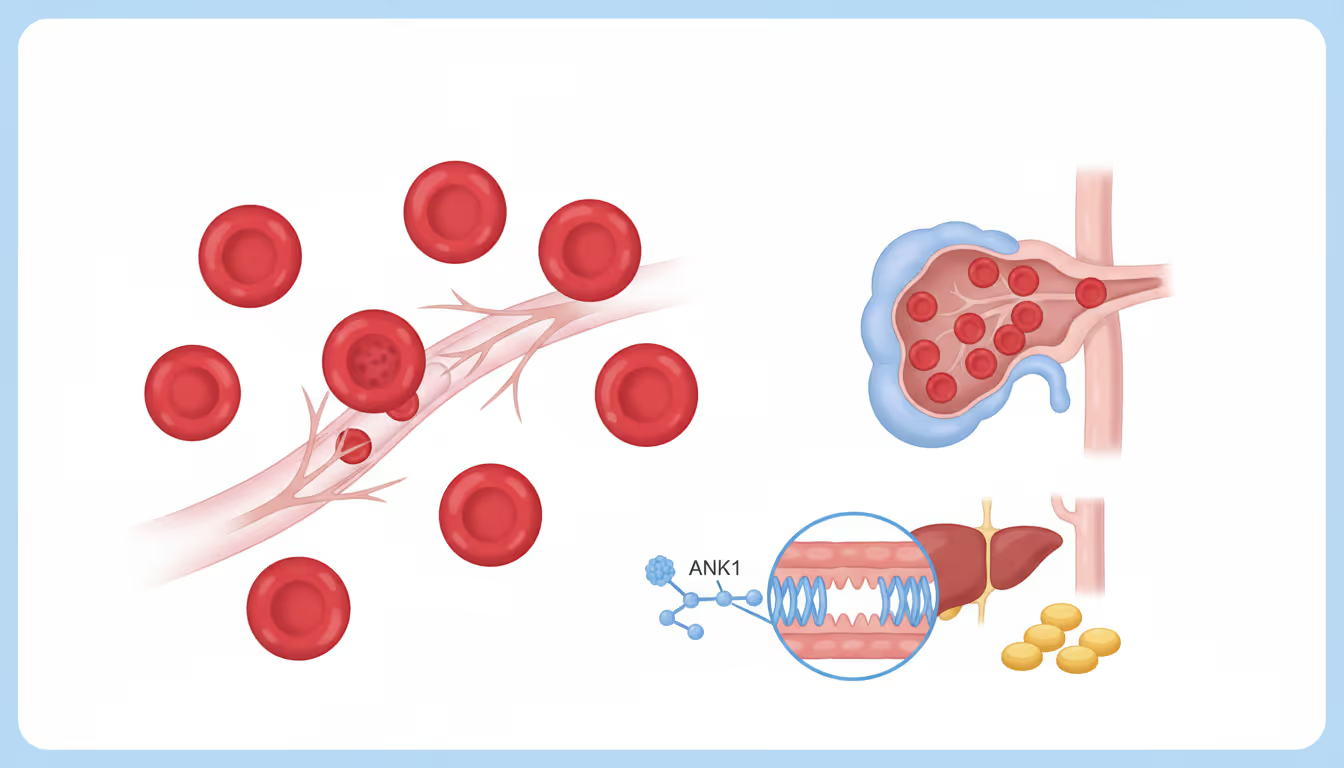
Hereditary spherocytosis is a genetic condition affecting the membrane of red blood cells, leading to clinical symptoms such as jaundice and an enlarged spleen. In this disorder, red cells are smaller, rounder, and more fragile than usual. Rather than having the normal biconcave-disk shape, these cells are spherical. These spherical red cells, known as spherocytes, are less flexible and more osmotically fragile, causing them to become trapped and break apart (hemolyze) in narrow blood vessels, especially within the spleen.The accumulation of red blood cells in the spleen often results in splenomegaly. When red blood cells break down, they release heme, which converts to bilirubin, causing jaundice. The excess bilirubin can lead to gallstone formation, even in young individuals. The condition frequently involves the excessive breakdown of iron-rich red cells. Hereditary spherocytosis is most prevalent among those of northern European descent and typically appears during infancy or early childhood, causing anemia and jaundice. The body struggles to produce more red cells, and if the bone marrow halts red cell production during a viral infection, this can lead to severe anemia, known as an aplastic crisis.Laboratory tests reveal an abundance of spherocytes, increased reticulocytes (immature red cells), elevated bilirubin levels due to red cell breakdown, and heightened osmotic fragility. This condition stems from a deficiency in a protein called ankyrin, which is essential in connecting integral proteins with the membrane's spectrin-based skeleton. The specific ankyrin in red blood cells, ankyrin-R or ankyrin-1, is represented by the symbol ANK1, and the responsible gene is located on chromosome 8 at band 8p11.2. Hereditary spherocytosis follows an autosomal dominant inheritance pattern, meaning each child of an affected parent has a 50% chance of inheriting the condition.The primary treatment for hereditary spherocytosis is splenectomy (removal of the spleen). While the defect in red cells remains, hemolysis ceases post-splenectomy. However, young children without a spleen face an increased risk of overwhelming infections, especially from pneumococcus bacteria. Therefore, splenectomy is generally delayed until after age three, and vaccination against pneumococcus is recommended before surgery. People with hereditary spherocytosis or other causes of rapid hemolysis should take iron supplements.The prognosis after splenectomy is typically positive, with a normal life expectancy. Hereditary spherocytosis is also referred to as congenital hemolytic jaundice, severe spherocytosis, spherocytosis type II, ankyrin deficiency, ankyrin-R deficiency, and ankyrin1 deficiency.




